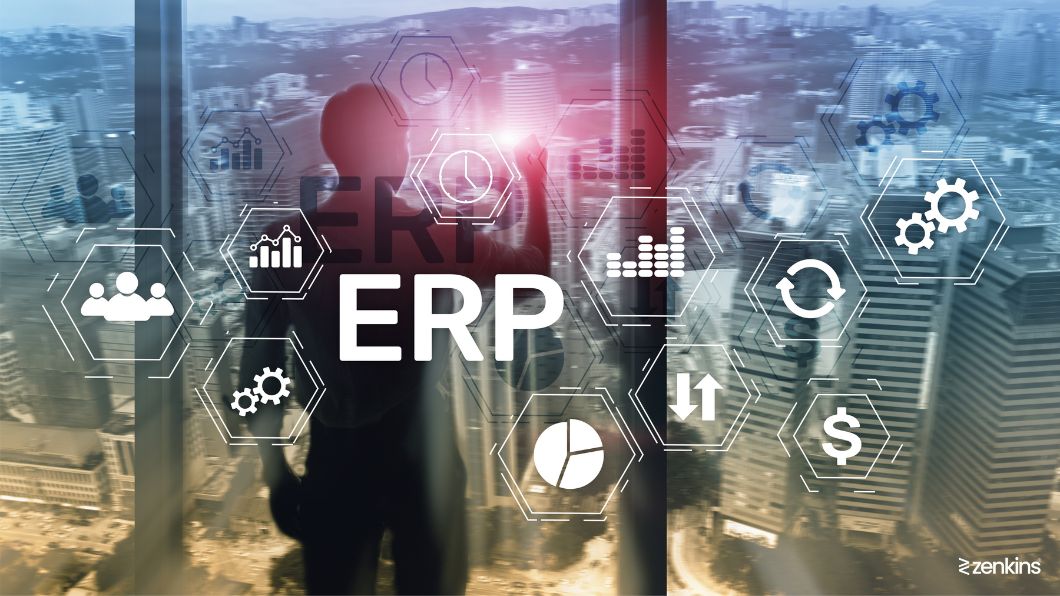Leading ERP Solutions in Pune: Streamline Your Business Operations
Table of Contents
Introduction to ERP Solutions
Understanding Enterprise Resource Planning (ERP)
In today’s dynamic business landscape, organizations in Pune are increasingly turning to Enterprise Resource Planning (ERP) solutions to streamline their operations and drive efficiency. ERP systems integrate various functions across a company into a unified platform, offering real-time visibility and data-driven insights. This article explores the leading ERP solutions available in Pune and how they can help businesses optimize their processes, enhance decision-making, and stay competitive in the market.
Understanding Enterprise Resource Planning (ERP)
Picture this: You’ve got a spreadsheet for finances, another for inventory, one for customer information, and you’re starting to feel like you’re drowning in a sea of data chaos. That’s where ERP swoops in like a superhero in a cape (well, maybe not an actual cape). Enterprise Resource Planning (ERP) software helps businesses integrate and manage their core processes in one centralized system. It’s like having a digital command center to streamline operations and boost efficiency. Welcome to the organized side!
Importance of ERP Systems for Business Operations
Enhancing Operational Efficiency
If efficiency had a middle name, it would be ERP. By automating processes, eliminating data silos, and providing real-time insights, ERP systems make your business run smoother than a freshly buttered skillet. Say goodbye to manual data entry errors and hello to increased productivity!
Improving Data Accuracy and Decision-making
You know that feeling when you base decisions on gut instinct and a sprinkle of hope? With ERP, you can ditch the guesswork and rely on accurate, up-to-date data. From inventory levels to sales forecasts, ERP gives you the power to make informed decisions that would make even the Magic 8-Ball jealous.
Key Features of Leading ERP Solutions in Pune
Customization Options for Pune Businesses
In a city as diverse as Pune, one-size-fits-all just won’t cut it. Leading ERP solutions in Pune offer customizable features to cater to the unique needs of local businesses. Whether you’re a small startup or a big player, there’s an ERP solution waiting to be tailored just for you.
Integration Capabilities with Existing Systems
Like a master chef harmonizing flavors in a dish, ERP systems in Pune can seamlessly integrate with your existing software systems. Say goodbye to the headache of data fragmentation and hello to a unified digital ecosystem where all your tools play nice together.
Choosing the Right ERP Solution for Your Business
Assessing Business Needs and Requirements
Before diving headfirst into the ERP ocean, take a moment to assess your business needs and requirements. Do you need robust inventory management? Improved financial visibility? By identifying your pain points and goals, you can choose an ERP solution that’s as tailored to your business as a bespoke suit.
Considerations for Scalability and Growth
You’re not just thinking about today; you’re dreaming about tomorrow and the day after that. When selecting an ERP solution, consider its scalability and flexibility to accommodate your future growth. You want a solution that can grow and evolve with your business, like a loyal sidekick on your superhero journey to success.
Considerations Before Implementing an ERP Solution in Pune
1. Understand Your Business Needs
- Clearly define your business objectives and the specific challenges you aim to address with an ERP solution. This understanding will guide you in selecting the most suitable system for your requirements.
2. Evaluate Integration Capabilities
- Ensure that the chosen ERP solution integrates seamlessly with existing systems and technologies. Integration capabilities are crucial for avoiding disruptions and ensuring a smooth transition.
3. Scalability
- Consider the scalability of the ERP solution to accommodate future growth. Pune’s dynamic business environment requires systems that can adapt to changing requirements and support expansion.
4. User-Friendly Interface
- The usability of the ERP system is critical for user adoption. Choose a solution with an intuitive and user-friendly interface to minimize training requirements and enhance user productivity.
5. Vendor Support and Reputation
- Research the reputation of the ERP solution provider. Consider factors such as customer reviews, vendor support, and the provider’s track record in delivering successful implementations.
6. Cost Considerations
- Evaluate the total cost of ownership, including implementation, licensing, and maintenance costs. Pune businesses should opt for ERP solutions that offer a balance between features and affordability.
Implementation Process of ERP Systems
Planning and Preparation Phase
When diving into the world of ERP systems, the first step is like planning a wedding without the stress (hopefully). This phase involves defining your business goals, mapping out processes, and gathering all the necessary data. It’s like creating a roadmap, but instead of driving to a scenic destination, you’re steering your business toward efficiency and productivity.
Training and Adoption Strategies
Picture this: you’ve got a shiny new ERP system, but your team is looking at it like it’s the latest TikTok dance challenge – confusing and a bit intimidating. This phase focuses on training your team on how to use the ERP system effectively and getting everyone on board with the new way of doing things. It’s all about ensuring a smooth transition and helping your employees embrace the change like it’s a freshly baked batch of cookies.
Benefits of Streamlining Business Operations with ERP
Cost Reduction and Resource Optimization
Who doesn’t love saving money and making things run more efficiently? ERP systems can help cut costs by streamlining processes, reducing errors, and optimizing your resources like a seasoned Tetris player. Say goodbye to unnecessary expenses and hello to a more profitable bottom line.
Enhanced Collaboration and Communication
Imagine your team working together like a perfectly synchronized dance routine – no toes getting stepped on here. ERP systems can enhance collaboration by providing real-time data, improving communication, and breaking down silos within your organization. It’s like having a virtual water cooler where everyone can chat and share ideas seamlessly.
Case Studies: Successful Implementation of ERP in Pune
Transforming Operations with ERP
A company in Pune decided to take the ERP plunge and boy, did it pay off! By implementing an ERP system, they streamlined their operations, improved efficiency, and boosted productivity like a shot of espresso on a Monday morning. Talk about a transformation worthy of a makeover show applause.
Realizing Business Growth through ERP
Another company was cruising along in Pune when they realized they needed a turbo boost for their business growth. Cue the ERP system! By leveraging the power of ERP, they optimized their processes, expanded their reach, and saw their business bloom like a well-tended garden. Growth spurt, anyone?
Future Trends in ERP Solutions
Emerging Technologies Shaping ERP Development
The future of ERP is looking as bright as a disco ball at a 70s themed party. With emerging technologies like IoT, blockchain, and cloud computing influencing ERP development, businesses can expect more advanced, integrated, and customizable solutions. It’s like upgrading from a flip phone to the latest smartphone – but for your business operations.
Impact of AI and Machine Learning in ERP Systems
AI and machine learning are the cool kids on the block, and they’re here to revolutionize ERP systems like never before. Imagine having AI algorithms optimizing your processes, predicting trends, and making decisions faster than you can say “Siri, what’s the weather today?” The impact of AI and machine learning in ERP systems is set to make operations smoother, smarter, and more efficient than ever before. It’s like having a virtual assistant that actually knows what you need before you ask.
Conclusion: Embracing ERP Solutions for Business Success
In conclusion, implementing a robust ERP system is crucial for businesses in Pune looking to streamline their operations and achieve sustainable growth. By leveraging the key features of leading ERP solutions, organizations can enhance their efficiency, improve data accuracy, and make informed decisions. As ERP technology continues to evolve, it is essential for companies to stay updated on the latest trends and advancements to stay ahead in the competitive market landscape. By embracing ERP solutions, businesses in Pune can pave the way for long-term success and operational excellence.
Frequently Asked Questions (FAQ)
What are the typical costs associated with implementing an ERP solution in Pune?
The costs associated with implementing an ERP solution in Pune can vary based on several factors, including the size of the business, the chosen ERP system, customization requirements, and the complexity of the implementation. Generally, costs may include licensing fees, implementation services, training, infrastructure upgrades, and ongoing maintenance. Small to medium-sized enterprises (SMEs) in Pune might opt for cloud-based ERP solutions, which often have lower upfront costs compared to on-premise solutions. It’s advisable for businesses to request detailed quotes from ERP vendors and consider the long-term return on investment.
How long does it usually take to fully implement an ERP system for a business in Pune?
The duration of ERP implementation in Pune varies depending on factors such as the complexity of the business processes, the scope of customization, and the readiness of the organization for the change. Small to medium-sized projects might take several months, while larger enterprises with complex requirements may take a year or more. The implementation process typically involves phases such as planning, customization, data migration, training, and system go-live. Engaging a skilled implementation team, setting realistic timelines, and ensuring effective communication are essential for a successful and timely ERP implementation in Pune.
Can a small or medium-sized business in Pune benefit from using an ERP solution, or is it more suited for larger enterprises?
ERP solutions are beneficial for businesses of all sizes in Pune, including small and medium-sized enterprises (SMEs). While larger enterprises may have more complex requirements, SMEs can leverage ERP systems to enhance efficiency, automate processes, and gain a competitive edge. Many ERP vendors offer scaled-down versions or cloud-based solutions that are more cost-effective and tailored to the needs of smaller businesses. SMEs in Pune can benefit from improved visibility into their operations, streamlined workflows, and better decision-making capabilities, leading to overall business growth.
Are there any specific challenges that companies in Pune may face when integrating an ERP system into their existing operations?
Integrating an ERP system into existing operations in Pune, as in any other location, can pose specific challenges. Some common challenges include:
Resistance to Change: Employees may resist adopting new processes and technologies. Adequate training and change management strategies are essential to overcome this challenge.
Data Migration: Transitioning data from legacy systems to the new ERP can be complex. Ensuring data accuracy and completeness during migration is crucial.
Customization: Tailoring the ERP system to align with specific business processes might be necessary. However, excessive customization can lead to increased costs and implementation complexities.
Integration with Existing Systems: Ensuring seamless integration with other existing systems and applications is crucial for a smooth operation. Compatibility issues may arise, requiring careful planning.
Vendor Selection: Choosing the right ERP vendor is critical. Companies in Pune should thoroughly evaluate vendors based on their track record, support services, and the scalability of their solutions.




